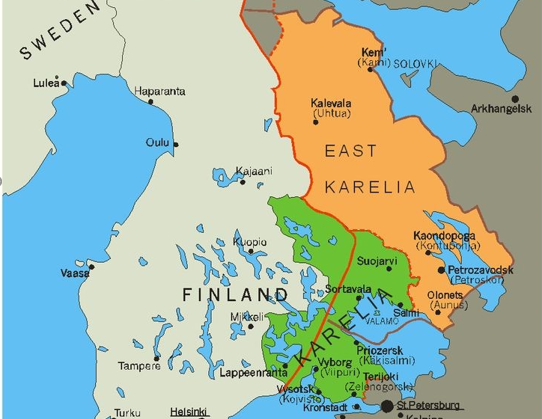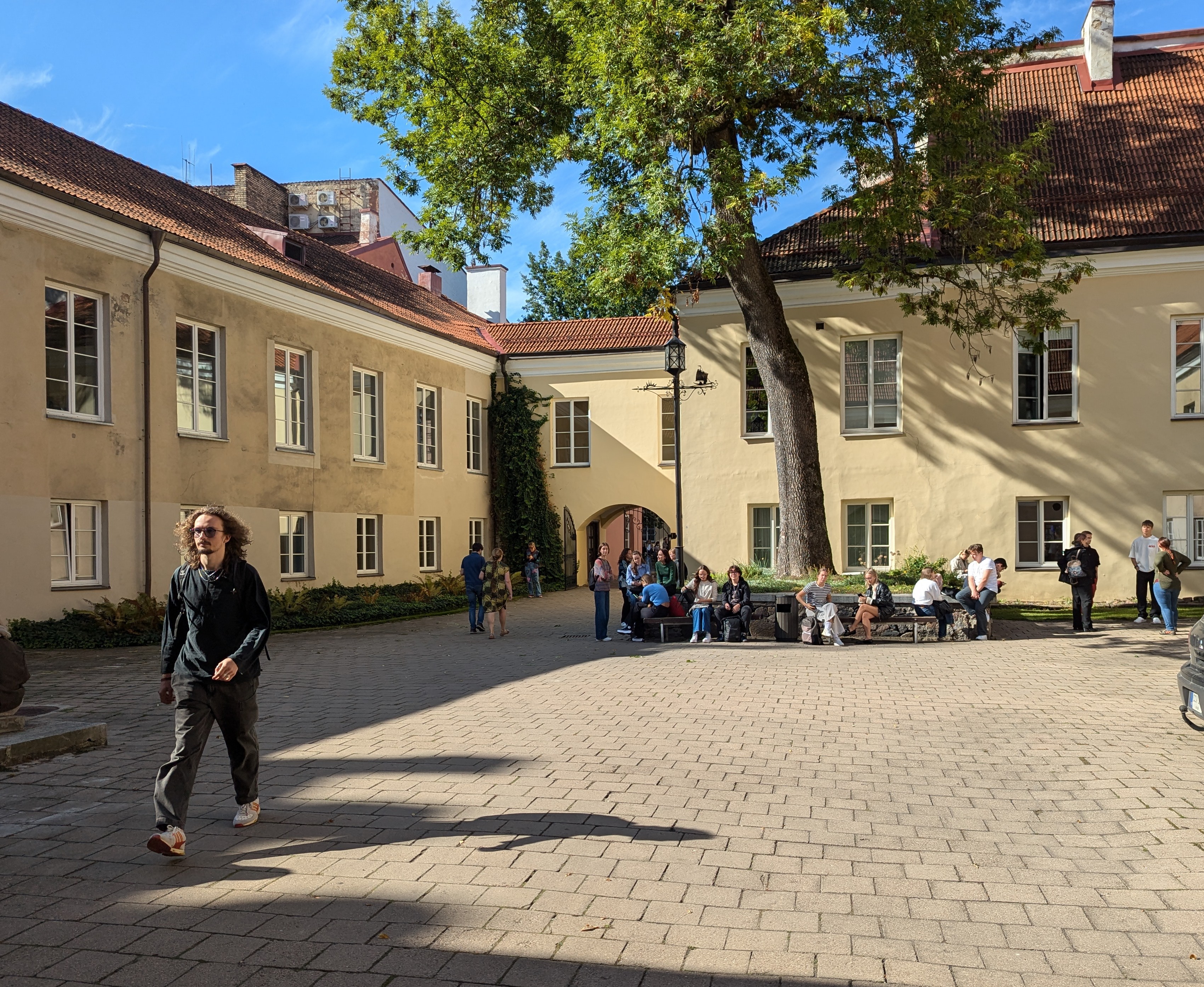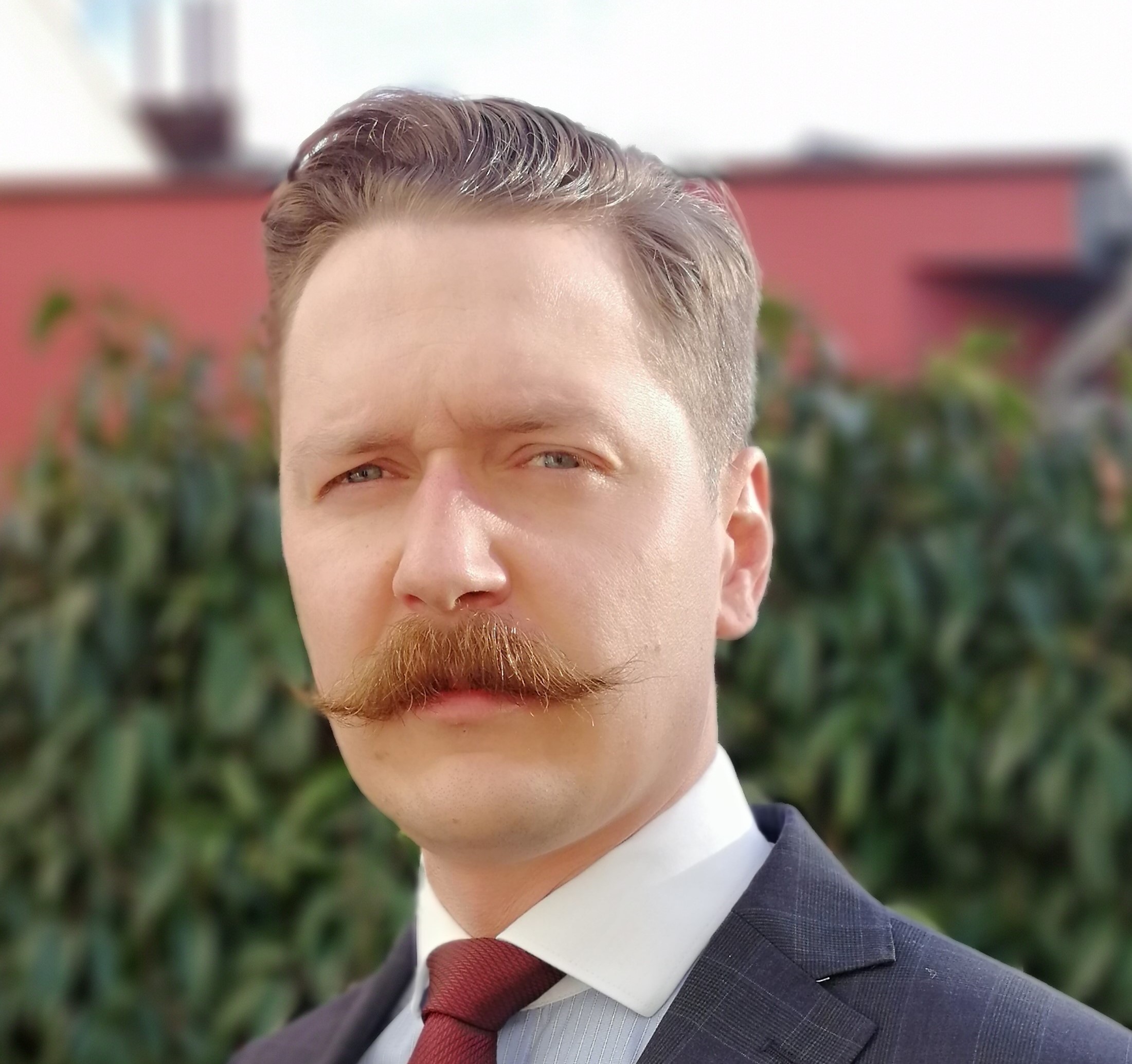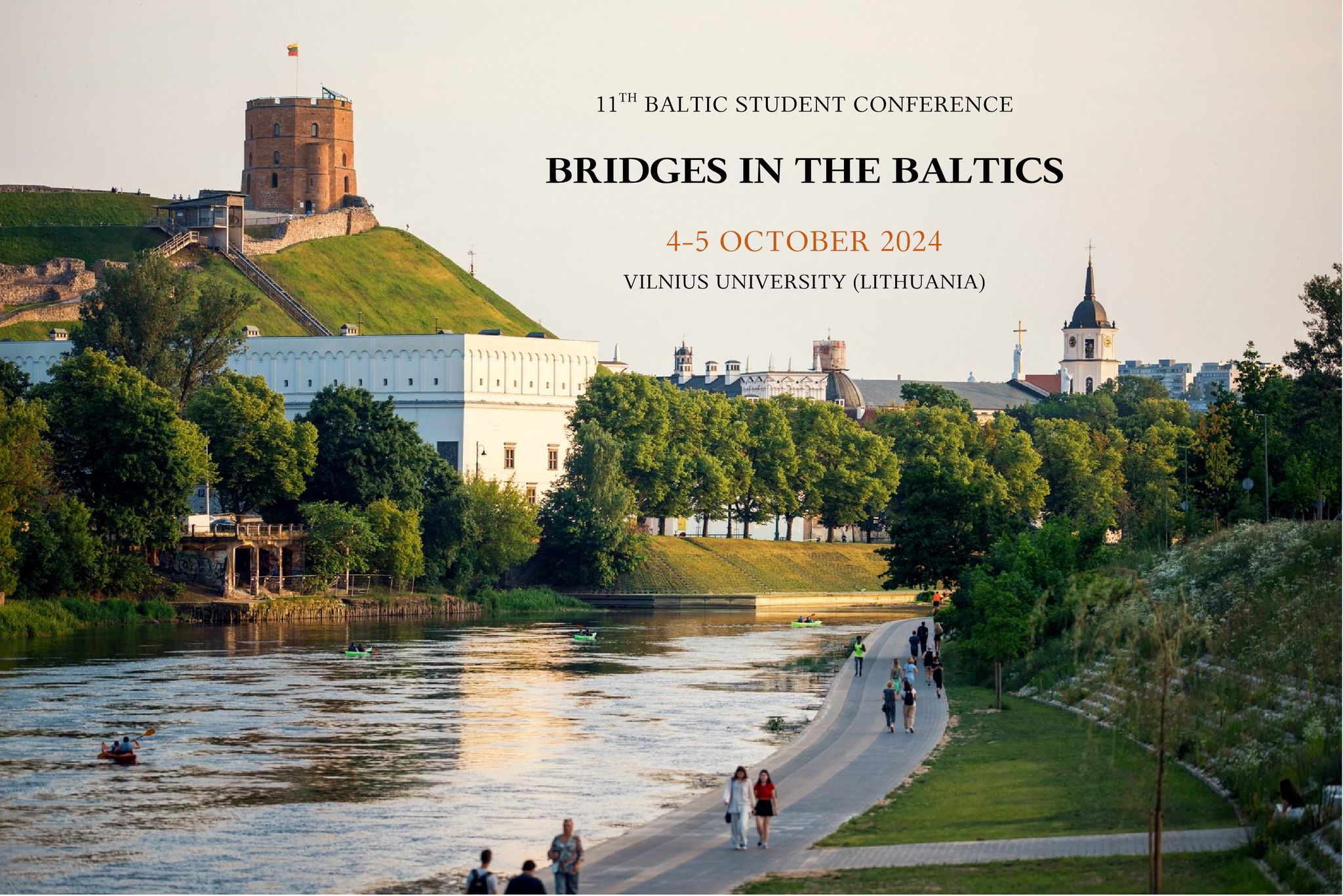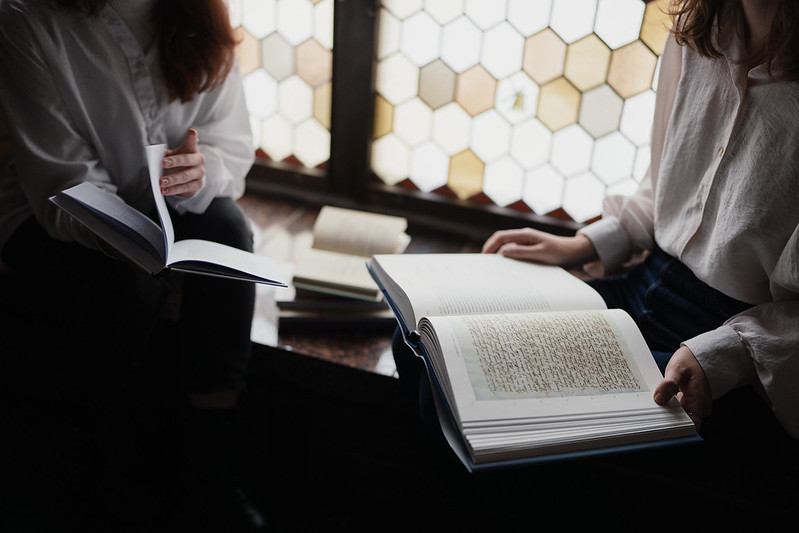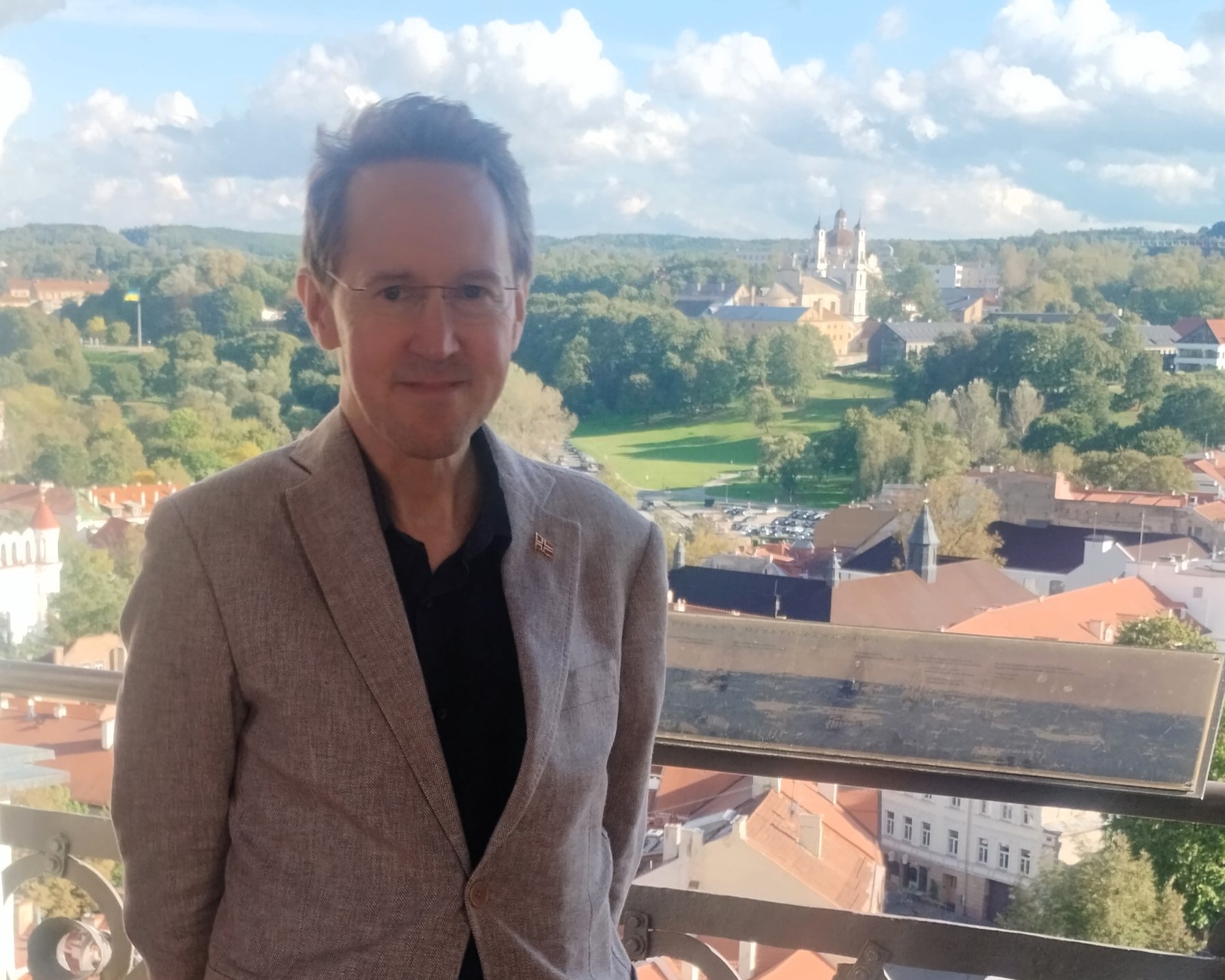
At the Centre for Scandinavian Studies, we recently had the opportunity to speak with Gisle Tangenes, a guest lecturer from Norway, who visited us from 23th–28th September. His visit was organized through Erasmus+ funding for staff mobility from enterprises abroad. For the students of Vilnius University, Gisle has taught lectures and practical seminars on the Norwegian language, its history, and contemporary culture. Currently teaching at the Norwegian language school Lingu, Gisle brings a rich and diverse academic background to our faculty, having deeply explored subjects such as religion, philosophy, political science, and Norwegian literature. We sat down with our guest to discuss his work, his thoughts on the intersection of religion and free speech, and his experiences in teaching.
Your academic journey spans multiple disciplines, including religion, philosophy, political science, as well as Norwegian language and literature. Could you tell us more about your academic background and what led you to pursue these diverse fields of study?
First of all, thank you for your interest, and above all for your incredible hospitality during my lovely week here at Vilnius University. You are lucky to have such beautiful surroundings for your Faculty of Philology, and the Centre for Scandinavian Studies is a gem.
Well, I guess I have always been drawn to foundational problems of the human condition, so Philosophy was a natural choice. Eventually I got a six-year Master (cand.philol) in that, also including an intermediate level of Political Science and International Relations. I was into everything from Metaphysics and Philosophy of Science to Ethics and, especially, Political Philosophy. Within the latter I focused on normative questions of cultural and religious diversity in modern society. However, my master’s thesis was on Social Ontology: How social reality is essentially constituted by shared understandings, mediated by language.
Later, after getting into language teaching, I took a couple of hundred credit points in Norwegian Second Language Acquisition and Nordic Languages and Literature, a.k.a. Scandinavian Studies. In addition I completed one-year programs in English, History, Comparative Religion, and Practical Education, thus becoming a “Lecturer with additional education”. Maybe one day I’ll get a doctorate, but in truth I’d rather spend my time teaching, helping others reach their goals.
That aside, my greatest passions are probably history, classical music, and literature, as well as exploring different cultures. I genuinely enjoyed Vilnius.
Please tell us more about Lingu, the language school where you currently teach. What sets it apart from other language institutions, and how does it cater to the diverse needs of its students?
At Lingu we focus on blended learning, where teacher-led classes – often online, but some of them physical – are combined with advanced online resources which marshal the power of interactive learning. It has made Lingu a market leader in Norway, winning government contracts as well as all kinds of enterprise and private clients. We have many fine teachers, I would say, constantly learning from each other.
Currently, Lingu is focusing on integrating AI assistance in a way that supplements rather than replaces the teacher-student relationship. We are also enhancing the learning journey to introduce Norwegian as efficiently as possible, with Norwegian as the main support language in our courses. Our online interactive resource, Samaneh’s Journey, provides the option to choose learning support in multiple languages, offering a more personalized experience for learners.
It’s exciting to forge a partnership with your Centre for Scandinavian Studies. There is a lot of promise for continued mutual enrichment through the Erasmus+ Mobility Program. For example, I’m pleased that our Language Café was such a success and will be continued, even with other languages taught at the Centre.
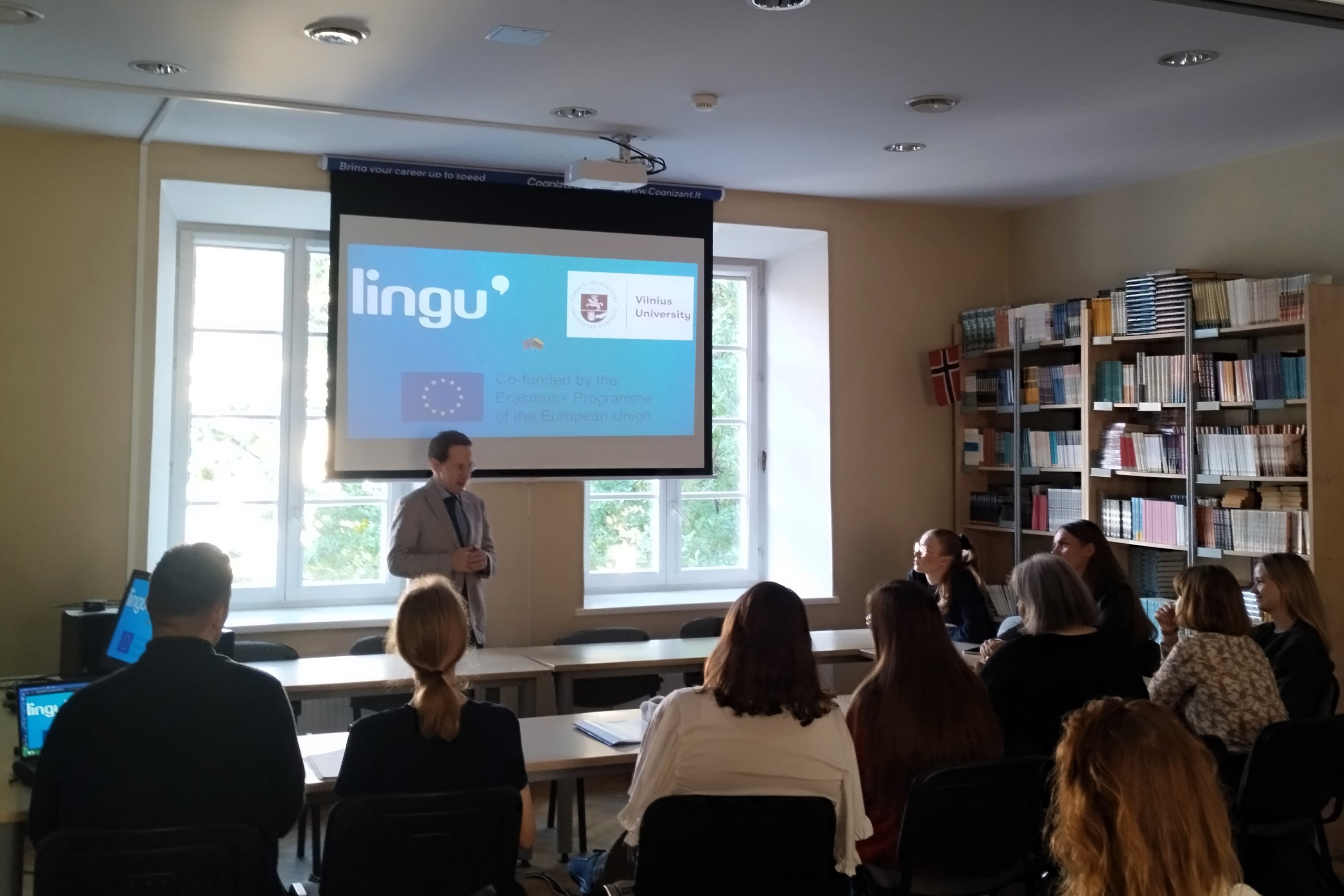
Your second MA thesis, in Scandinavian Studies, will be a discourse analysis of the debate surrounding the Muhammad cartoons controversy in Norway, a highly sensitive and complex topic. Could you tell us more about what drew you to this subject and what you’ve found to be the most interesting or surprising insights so far?
My new thesis does indeed examine the aftermath of the publication, initially by a Danish newspaper in 2005, of caricatures of the Prophet Muhammad. It led to riots, a diplomatic crisis and terrorist attacks. The cartoons were republished by a Norwegian magazine, making Norway too a target of the wrath and initiating years of public debate about the proper scope of free expression. So I chose this topic as it brings together a number of my interests: Language, religion, politics, and the dilemmas of a modern multicultural society.
Approaching the debate from a sociocognitive perspective, I look at how the respective sides construe the controversy in terms of who is aggressor and victim. For those who want limits to free speech, the original publication was a xenophobic provocation by elite conservative members of the majority against a vulnerable minority whose feelings deserve protection. For their adversaries, the true oppressors are global religious leaders seeking to misuse the penal code to censor criticism of their powerful and restrictive ideology.
It’s fascinating to see how these underlying models frame the discourse, shaping the rhetoric being deployed. For those familiar with the field, I have modified the classic Toulmin schema to accommodate this newer sociocognitive approach, using that to structure the analysis.
Given your diverse academic background and the unique insights you’ve gained from your studies, how have these different fields influenced your teaching? Additionally, how do you integrate this interdisciplinary knowledge into your approach to language education, and what is your overall philosophy of language teaching?
A broad humanistic background comes in handy at higher levels, and at any level it may help one connect with particular students. That said, the meat and potatoes of language teaching is certainly applied linguistics – grammar, phonetics and so on. I’m a firm believer in good old-fashioned subject matter knowledge, inspiring trust and confidence. Yet it must be used pragmatically, based on practical experience. A fraction of the grammar rules generate most of the typical learner’s mistakes at every skill level, so it is good to know what to prioritize.
Of course, language is so much more than rules. Fundamentally speaking, the very notion of “rules” is just shorthand for recurring formal patterns within linguistic varieties. I am partial to Construction Grammar theory, particularly usage-based models, and see a potential for implementing its insights through AI-assisted learning. We are at the start of a revolution, but hopefully, human teachers won’t be obsolete. Students would miss us – or so they say!
Teaching is a practical skill, but there are some principles at play. Two of the key ones are to empathize with the learners and to keep them actively engaged. The first principle involves understanding where the students are currently at, where they need to go, and which route is fastest for them in particular. It also means helping them feel safe to view their mistakes as learning opportunities. Furthermore, the teaching resources should include creative material. Art, film, music, poetry, stories, games – anything to stimulate imagination and emotion.
This brings us to the second principle. Strictly speaking, no one ever teaches anyone anything. Rather, one enables learning by modifying the environment in specific ways. Even when we lecture, we are just producing certain sounds and gestures which may, or may not, be processed as meaningful input. And obviously, most teaching is more interactive than lecturing. So a teacher is really a facilitator, a coach.
Norway is a sea-faring nation, so let me indulge in a sailing analogy. The “wind in the sails” is inductive learning based on comprehensible input, as well as the learner’s output. Without this, there is no progress. Formal instruction corresponds to steering, adjusting the course to ensure an efficient passage. And that is done by raising awareness of significant patterns in the target language. In turn, this also primes learners to notice those features in future input. But instruction should be as interactive as possible. For instance, mistakes are preferably corrected by helping learners make their own revisions, providing clues as required.
I am perhaps happiest when moving among tables of busy students who are conversing based on prompts provided. Then I can offer calibrated feedback by speech and gesture, sometimes capturing what a learner just said on my portable mini-whiteboard and helping to sort it out. This is where a certain personal warmth and finesse is essential. You want to coax people out of their shells and push them gently, not put them on the spot.
I was impressed by the level attained by the second-year students and the dedication shown by all of the students. Clearly you’re doing something right. Hope to be back one day!
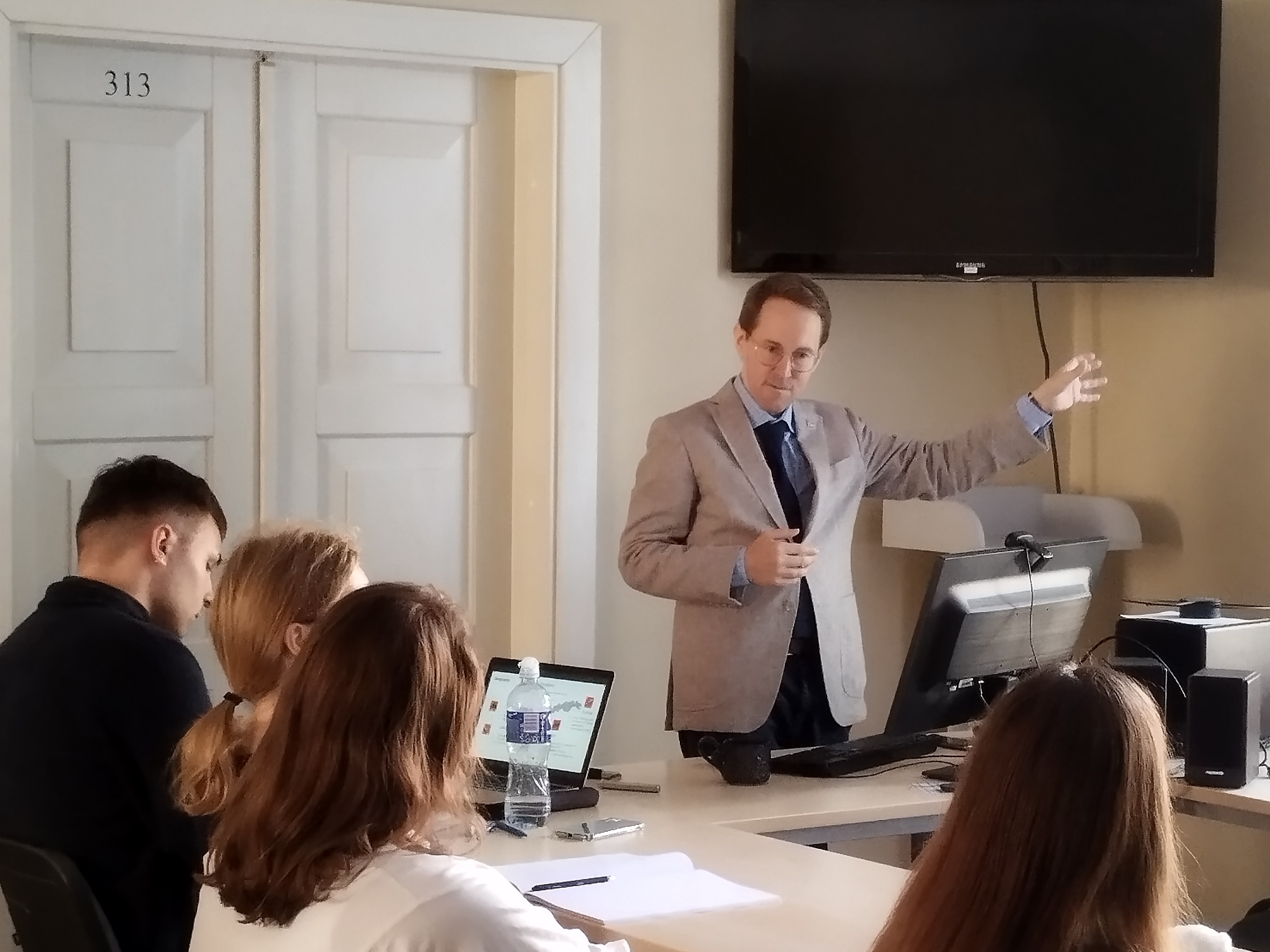
Thank you so much for sharing your thoughts and perspectives. Everything you have told about teaching resonates so deeply with what we are striving to achieve here at the Centre for Scandinavian Studies. We are truly grateful for your kindness, insightful teaching, and all the knowledge that you have shared during your visit. Hope to welcome you back soon!
Interviewed by Rūta Šileikytė Zukienė
